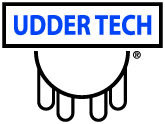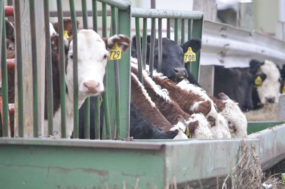“Gulf Coast tick management, especially on pastured cattle, has largely been ineffective due to chronically poor tick infestation estimations,” Teel said.
“On-animal pesticide applications target only the adult tick stage and are often ineffective for the long term. That’s because producers treat when it’s convenient without knowing the level of infestation in the pasture or the risk of re-infestation.
“Labor costs and animal stress make objective physical exams impractical. The secret to widespread tick control is determining what weather predictors indicate the best chance for effective control in the environment.”
Teel said successful long-term integrated tick management tactics target the host animal’s environment through habitat modification including brush control using prescribed fire, herbicide or mechanical removal. The problem is there’s currently no effective method to monitor Gulf Coast tick populations to predict risks of infestation or disease transmission, he said.
“Our goal for the future is to make our weather decision-making tools available to all animal and public health clientele through online access to web-based applications and, ultimately, via mobile wireless technologies,” Teel said.
“Cattle producers will likely receive the greatest economic benefit from our research project because they could directly use the predictions and risk assessments of Gulf Coast tick population changes to make short-term decisions about on-animal tactics and longer-term decisions about pasture and range management strategies.”
Teel said production losses associated with the Gulf Coast tick in Texas, Oklahoma and Kansas in 2008 exceeded $108 million annually.
“Today, the economic impact of this pest on pastured cattle throughout the 13 state Southern Integrated Pest Management Region would exceed the 2008 amount as cattle and calves now rank among the top five agricultural commodities in nine of those states,” he said.
Losses to Gulf Coast ticks stem not only from the irritation and blood-loss the host animal suffers, but also from possible infection by any of a number of diseases the tick is known to carry, Teel said.
The Regional Integrated Pest Management grant Teel received is an annual program run by the U.S. Department of Agriculture-National Institute of Food and
Agriculture. Only six out of 35 proposals were funded this year. The grants fund regional research, Extension or combined research and Extension projects focusing on integrated pest management that benefit and involve more than one state.
To learn more about ticks go to The TickApp for Texas and the Southern Region, http://tickapp.tamu.edu/.
For more information contact Teel at 979-845-3253, pteel@tamu.edu. 







